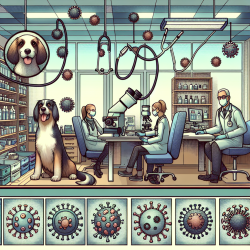Introduction
In the fast-paced world of medical education, the challenge of ensuring long-term retention of knowledge is a pressing concern. The recent research article, "The medical school curriculum is not designed for long-term retention: we should stop being alarmed when our learners forget," sheds light on this issue and offers insights into how educators and practitioners can improve their teaching methods to foster better retention among students.
The Problem with Current Curricula
Medical school curricula are often compared to drinking from a water cannon due to the overwhelming volume of information presented to students. This analogy highlights the core issue: the design and sequencing of learning activities do not support long-term retention. The research indicates that while medical educators may intend for curricula to promote retention, the reality is quite different. Students frequently forget material because the current educational model is not conducive to deep, lasting learning.
Strategies for Improvement
To address these challenges, the research suggests several strategies that educators can implement:
- Focus on Core Objectives: Prioritize essential knowledge, skills, and attitudes that are directly applicable to professional responsibilities. Avoid including inert or esoteric material that lacks a clear rationale.
- Incorporate Evidence-Based Learning Techniques: Utilize strategies such as spaced learning, retrieval practice, and elaboration, which have been shown to enhance deep learning and retention.
- Allow Time for Independent Study: Provide students with the time and resources needed for independent learning, enabling them to review, connect, and practice material at their own pace.
- Monitor and Adjust: Continuously evaluate short-, mid-, and long-term outcomes to make necessary adjustments to the curriculum, ensuring it remains effective in promoting retention.
Encouraging Further Research
While the article provides valuable insights, it also highlights the need for ongoing research in this area. Educators and practitioners are encouraged to explore additional studies and resources to further enhance their understanding of effective teaching strategies. Engaging with professional networks, attending conferences, and participating in webinars can provide opportunities for learning and collaboration.
Conclusion
Improving long-term retention in medical education requires a concerted effort to redesign curricula and implement evidence-based teaching strategies. By focusing on core objectives, utilizing effective learning techniques, and allowing time for independent study, educators can create an environment that supports deep, lasting learning. For those interested in delving deeper into this topic, the original research paper, The medical school curriculum is not designed for long-term retention: we should stop being alarmed when our learners forget, provides a comprehensive overview and is a valuable resource for further exploration.










